This show started off with one hell of a tough sell, but I’ll be damned if it didn’t close the deal.
To start with the easy part, Koi wa Ameagari no You ni was great. We get into a lot of subjectivity with “best” discussions, and there are a ton of different measures we could use for it anyway. But taking everything into account, this was the best show of the season (which turned out to be quite a respectable one) for me. There wasn’t much that this show didn’t do exceptionally well – casting, direction, music (my God, I love the soundtrack here), visual presentation. The “boring” part of the discussion is that this was a superb series across all fronts, plain and simple.
That’s about all that’s boring, simple or easy about Koi wa Ameagari, though. This is an anime that was complex, difficult (by design) and nuanced – and it certainly elicited complex feelings from me as a (re)viewer. The evolution of my views about the series over its run is interesting to me (though perhaps only to me), because they’ve changed so much. Even the adaptation part of the equation was complicated, because the manga ended the same week as the anime – which had covered (so I’m told) only about half the chapters. No spoilers about that, please – I’m off there next…
While by certain nominally objective measures (pacing, animation, staging) this finale was superb, how satisfying one finds it might well depend on what they were hoping to take away from the story. And even that’s complicated, because right up the end I wasn’t sure just exactly what that was in my case (and if you’d told me that two months ago, I’d have laughed in your face). I would say the ending was broadly in line with what I was expecting – what I’ve been predicting in this space for the last few weeks. But delivering that and truly pulling it off are not the same thing, and Koi wa Ameagari absolutely managed to do both here.
As always, it’s the little touches Watanabe-sensei delivers that color in the spaces between the emotional frames, that give Akira and Kondo’s story it’s staggering depth and realism. Stuff like when Akira tries to drink her coffee black, and has that wonderful reaction – I mean, as a lover of anime and cinema, that’s just beautiful to me. It’s funny (go on, don’t at least smile – I dare you) but there’s so much meaning packed into that moment – it reveals so much about the character and where she is in her life. That’s what this show does, and why it stands head and shoulders above most of the competition.
We’ve known for a while that running was exerting its gravitational pull on Akira, drawing her ever closer. “The Wind” indeed (it’s a good name for a school if you run track), but I was glad to see it was another interaction with Yuuto-kun that was the final impetus. First, because I love the two of them together – they’re both adorable. Second, because this happens so often in life – when we have to teach something to others, we rekindle the love we had for it ourselves. For Akira it’s important to remember the moments before the pain, where everything seemed possible (as it should when you’re fifteen).
As for Masami, it was never quite as certain that he would commit himself to rekindling his own dream – because, in truth, his dream is much harder to pursue than Akira’s. At this point she just has to want it enough, but he has to want it and be willing to put everything at risk for it – and even then face a likelihood of failure. Again, it’s Yuuto that’s a key here, because Masami is very aware of the role his actions as a father play in shaping the behavior of his son. The promise he extracted from Yuuto would ring hollow if he weren’t willing to cross the finish line himself, even if it’s at a limp and in last place.
I think the key for Masami, really, is accepting that in order to be true to himself, he doesn’t have to become a published novelist – he just has to commit himself to literature. To reading it, to writing it, to use it as the lens through which he sees the world. That’s something he can do just by wanting it enough – but that’s easier said than done. Likewise for Akira, which is really where Masami and she come into the equation. More than anything the fact that they believe in each other in an unqualified way is what gives the other strength, and of course they push each other to follow their heart – because they’re both good people who love each other.
Of course there was always more to this story, even if, in the end, it wasn’t really the point. In the finale Koi wa Ameagari sort of walks away from the romance question, seemingly, but I think that’s an illusion – the answer it gives here is pretty definitive. This is the real world – the obstacles for a 45 year-old man and a 17 year-old girl are simply too insurmountable, even if they are in love (which I believe these two may be). As I’ve noted before, Masami is simply not the sort of man who could ever be in a romantic relationship with a girl Akira’s age – it’s only one reason why this can’t work, but it’s enough of one that it doesn’t even need any help. That’s the Catch-22 of this situation – the kind of man who could be with Akira is not the sort of man Akira would ever fall in love with.
I’m a bit sad about all that, because in the end a part of me finally did hope that Akira and Masami would actually become a couple. Only a small part, but even that is stunning for me and a testament to how beautifully Koi wa Ameagari told its story. But truthfully, love isn’t enough in life – not most of the time – and I know not just in my head but my heart that it’s better this way. I also know that romance or not, this was a love story, because these two absolutely did come to love each other. And they certainly changed each other’s lives in a more profound way than most romances ever could.
Way back in my Episode 3 post, I said, “Whatever you think about the concept of a love story between a 45 year-old man and a 17 year-old girl, there’s a right way and a wrong way to do it, and this series is doing it the right way.” And despite all my misgivings, that never stopped being the case – not only did Koi wa Ameagari address this delicate topic the right way, it did so just about perfectly in my book. I’m completely, unreservedly won over – every doubt I had has been addressed, and every threshold I set has been met and comfortably exceeded.
What a joy it is to have NoitaminA give us a mature, complex and difficult series to chew on once again – and for it to be a brilliant one at that. This is why the block (it’s hardly a “block” anymore of course) exists in the first place. NoitaminA has had a few solid shows aimed at adults (Fune wo Amu comes to mind) in recent years, but honestly it’s been a pretty barren run – and we’ve seen nothing as excellent as Koi wa Ameaagari no You ni for a very long time. The next couple of properties seem to have some potential – the adult romance Wotaku ni Koi wa Muzukashii (with another solid director at the helm, Hiraike Yoshimasa) and the well-regarded Banana Fish. I don’t expect either of those shows to be on a part with Koi wa Ameagari, but 2018 should be the best NoitaminA year we’ve seen for a good while.
Watanabe Ayumu once again proves himself to be one of the best directors in anime, full stop – happily he’s back again this coming season with Major 2nd (a big change-of-pace, but one reason why Watanabe is so great is that he has incredible versatility). I think in the end the lesson of this series is that great ingredients often produce great dishes – Watanabe-sensei, Yoshimasa Ryo’s music, the cast (especially Hirata Hiroaki) Mayuzuki Jun’s manga. In my initial expectations for Koi wa Ameagari, I simply didn’t give all of that enough credit – in the right hands, a difficult premise holds that much more potential than a straightforward one. Lesson learned – and sale closed.


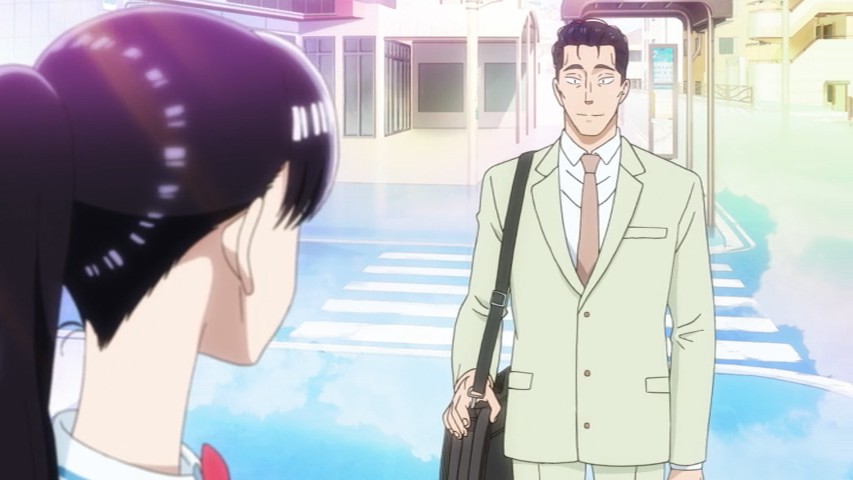
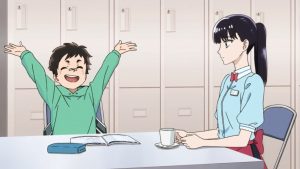
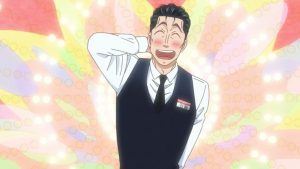
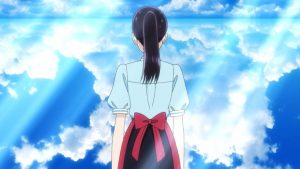
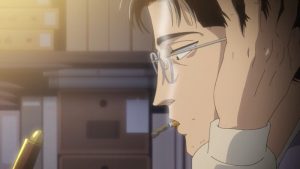
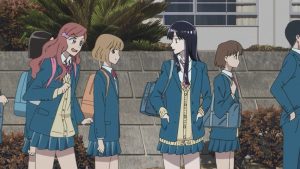
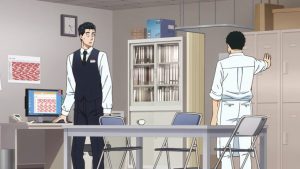
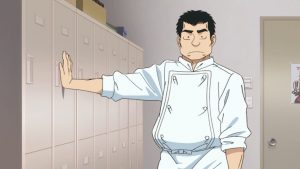

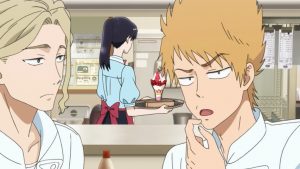
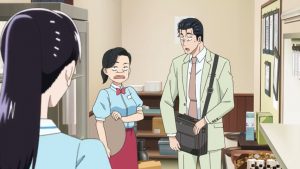
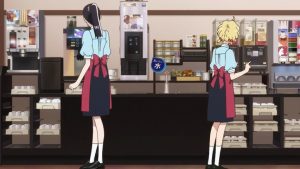
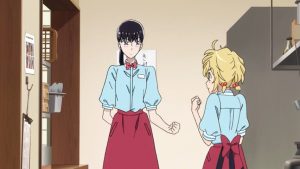
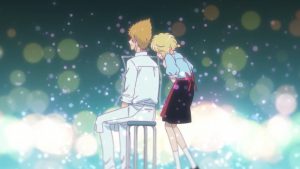
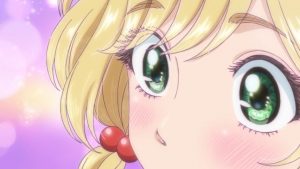
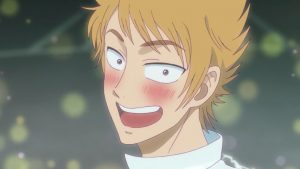
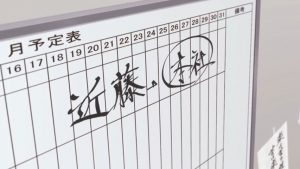
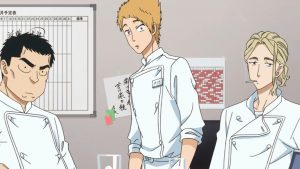
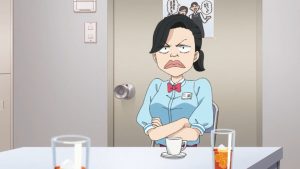
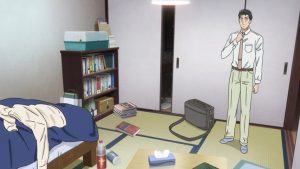


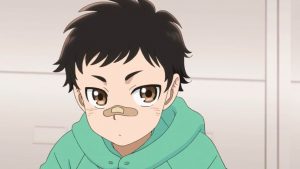
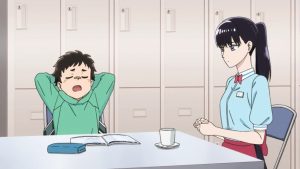
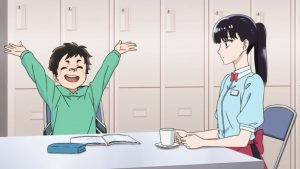
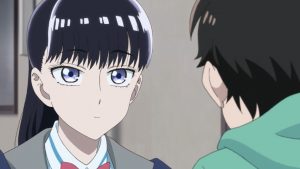
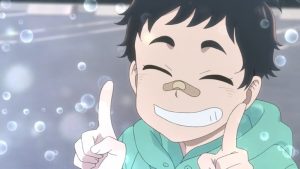
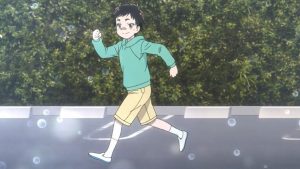
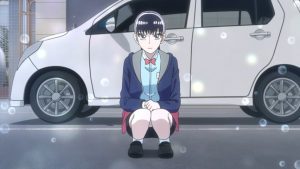
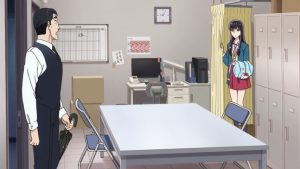
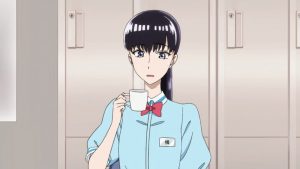
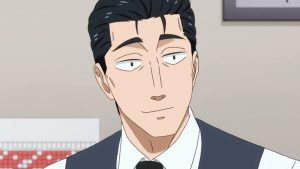
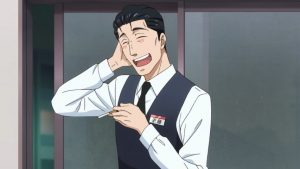

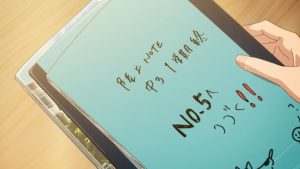
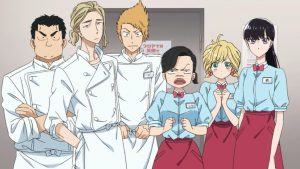
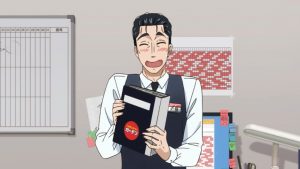

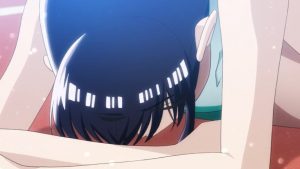
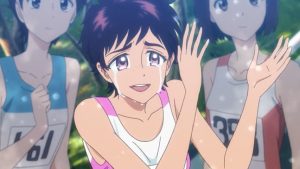
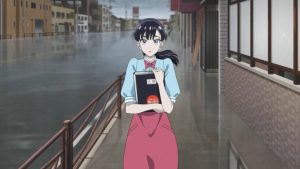
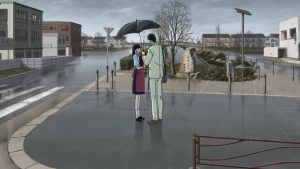
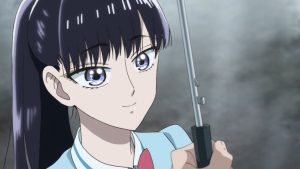
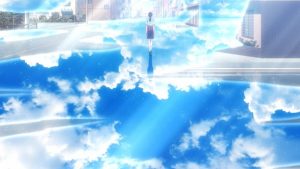
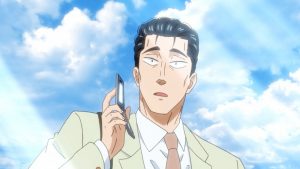

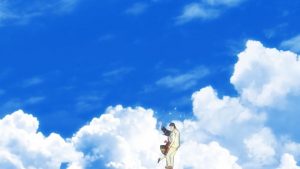
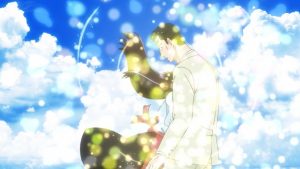
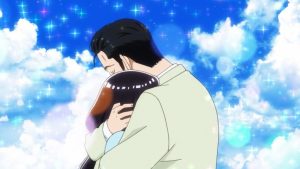
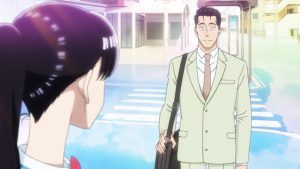
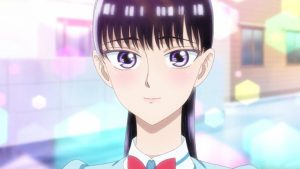
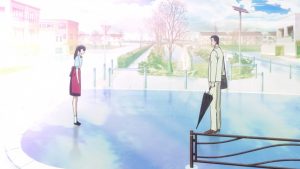
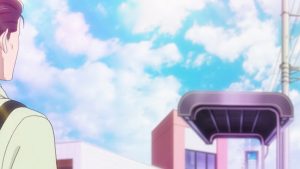

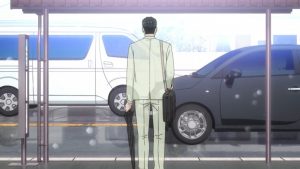
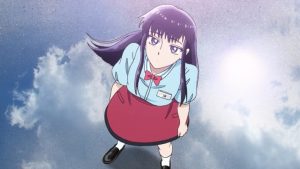


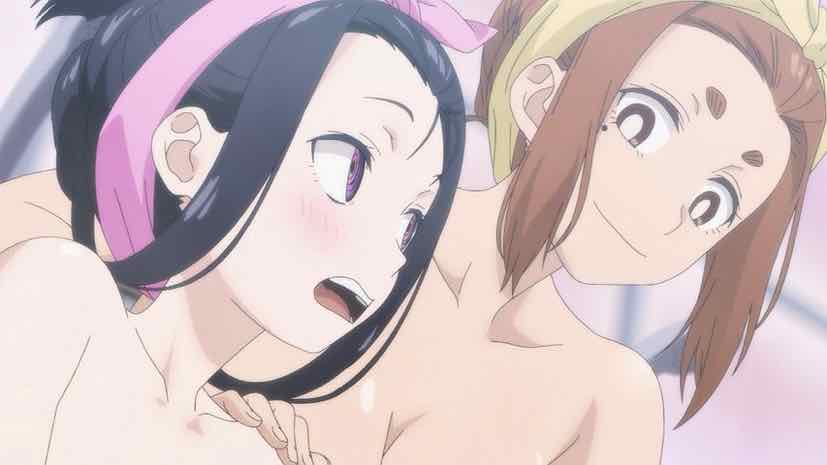
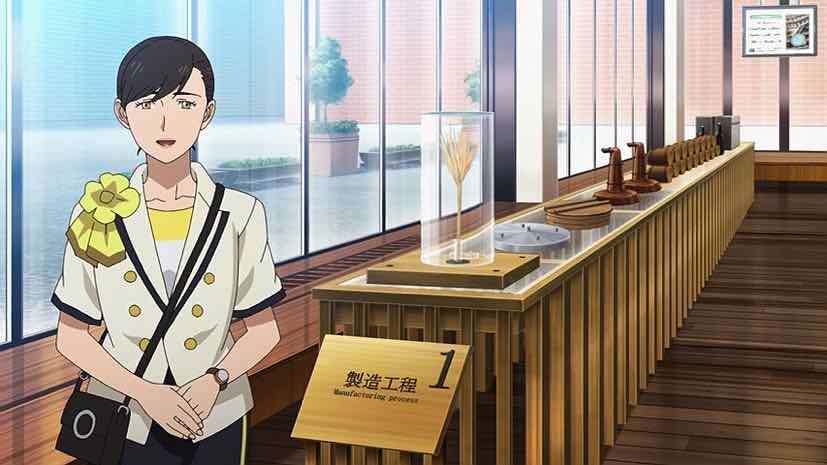
Life
March 30, 2018 at 8:08 amI love this series.
Mayuf
March 30, 2018 at 9:02 amThanks
Sam
March 30, 2018 at 9:15 amThis is the only anime I’ve watched in a while – as I liked the source material very much. Wanted to write about the ending of manga to compare how anime handled it, but guess I won’t now.
From early on, I kept thinking this is THE seinen show, with the way it handles the main subject matter. It’s quite measured and mature.
Saw the main complaint for the show was the main couple not getting together – à la Usagi Drop way. Like how nothing happened, no progress blah blah. Those folks are totally missing the point IMO. Wish it were 18 Ep instead of 12 to cover a little more character arcs, but oh well.
Think upcoming Spring is also quite good as there are actually two shows I am a fan of source materials coming – Hinamatsuri and Golden Kamuy. Both Seinen at that. As they are really good hopefully the adaptation does the justice like this one.
DauntingOverlord
March 30, 2018 at 12:59 pmWhat a show.
The wild guesser
March 30, 2018 at 7:36 pmI just got to vent a little, so please excuse my negativity, Burbank how can the term “underrated” be thrown around so carelessly on a show like A Place Further than the Universe, while su un an excellent show such as THIS is damn near the definitions of underrated.
Nothing wrong with A Place Further than the Universe, but you cannot really call something underrated if everyone is singing it’s praises.
justfun
March 31, 2018 at 3:38 amI don’t think that this show is underrated. It has fans, but it is also critized more or less heavily (see for example the posting on the Anime feminist blog). I for one was very disappointed in the show for having great production values, scriptwriting and art style, but ruin it with a bad story and bad story telling.
akira
June 21, 2018 at 5:57 amWhen i first started this show, it reminded me of how my mom as a teen almost go herself in a relationship with a guy twice her age. then my grandfather stepped in and ended it. however, i do agree with this is how you tell the story correctly, even though life is rude and many men are predators. however, i also didn’t give this enough credit after episodes 3.i thought it would be going to hell like violet evergarden. but good thing i tuck around for this cartoon. it was not my most favorite, but it is a great story with emotional scenes and great music. i place this a really close second to sora yori.
i wish anime and cartoons would get awards just like movies. then sora yori and koi wa ameagari would probably win for best picture and best music/soundtrack
Huzaifa
September 23, 2018 at 9:55 amCan anyone tell at what chapter of manga did the anime ended?
Guardian Enzo
September 23, 2018 at 1:34 pmChapter 39, but with an original ending.